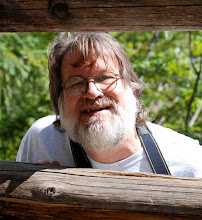Separation of Religion and NDEs
One of the rules of IANDS meetings is no proselytizing. It is not okay to preach a religious (or anti-religious) viewpoint.
That’s one reason why I like these meetings so much. It is not like going to church where someone tells you what to believe or how to interpret the Bible to conform to the organizational party line.
At IANDS meetings people share their stories. Research around the globe is showing that people who suffer near-death experiences are encountering a very wide range of otherworldly events.
Not everybody gets tunnels and interviews with light beings. Some get hellish experiences. Some get out-of-body journeys into voids. Some get instant insights. Some get meetings with beings perceived to be religious icons.
But what’s definitely clear is that there is not a standardized experience for everyone. And that brings me to today’s theme: the separation of religion and near-death experiences.
I suspect that many people would say that studying what happens to people who have near-death experiences shows a strong interest in religion. To me, it is more like studying nature, or supernature, as it were.
I started thinking about this as fallout from all the talk these days about the shrinking separation of church and state. If it were ever scientifically proven that there is no death, only transition to another reality, it would create a most fascinating situation.
If we knew that people did not die but that they moved in consciousness to another world, would we so cavalierly execute criminals?
If we knew that people did not die but that they moved in consciousness to another world, would we as a country be so inclined to declare war on other countries?
If we knew that people did not die but that they moved in consciousness to another world, would we as a country characterize death as tragic and be so governed in our media culture by fear of death?
If we knew that people did not die but that they moved in consciousness to another world, would we characterize abortion and assisted suicide for medical reasons as murder?
If we knew that people did not die but that they moved in consciousness to another world, would we as a culture be so focused on collecting material empires and inventing monuments to ourselves?
Religion is primarily about belief in something. When I read or listen to people’s NDE stories, I am not required to believe anything. They’re sharing their perception of what happened to them. It’s not much different from hearing someone describe a vacation they just returned from, and you haven’t been to that place yet. You’re interested in what they have to say and know that personal experiences do vary.
But as more and more people publicly report their NDEs, and as research gets more sophisticated, it’s going to become increasingly more difficult to ignore all this input. If it holds up that death doesn’t truly kill us—the big if—then it could (and I believe should) affect national policymaking.
It just makes sense to me that if masses of people are saying from their personal experiences that we don’t die, that our material world view is wrong, that the media keeps churning out a distorted view of reality, that medical science doesn’t have it all right, then maybe we should check it out.
In the meantime, in the absence of so-called scientific proof that we don’t die, I play a lot of “what if?” I ponder what the world would be like if all these NDErs are right (and especially after attending IANDS meetings, I have no reason to disbelieve them as a whole). I ponder the implications of all these people having out-of-body encounters and reporting a wide range of alternatives to the CNN view of the world.
To me, the afterlife (or the next life) is not a religious issue. I believe that learning about it is just as crucial as any other pursuit dedicated to human survival.


0 Comments:
Post a Comment
<< Home